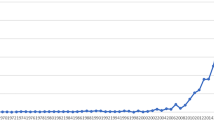
Overview
- This publication is open access, which means that you have free and unlimited access.
- Explains how social innovation in higher education institutions (HEIs) advances wealth-creating public policies
- Presents empirical evidence on how HEIs contribute to achieve the SDGs
- Identifies future opportunities in terms of improving societal well-being and economic growth
Part of the book series: Innovation, Technology, and Knowledge Management (ITKM)
Buy print copy
Tax calculation will be finalised at checkout
About this book
The book includes a selected set of peer-reviewed chapters presenting different perspectives against which relevant actors can identify and analyse social innovation in HEIs. The volume demonstrates how HEIs can respond to societal challenges, support positive social change, and contribute to the development of international public policy discourse. It answers the question ‘how does the present higher education system, in different countries, promote social innovation and create social change and impact’. In answering this question, the book identifies factors driving success as well as obstacles. Furthermore, it examines how higher education innovation assists societal challenges and investigates the benefits of effective social innovation engagement by HEIs.
The interdisciplinary approach of the volume makes it a must-read for scholars, students, policy-makers, and practitioners of economics, education, business and management, political science, and sociology interested in a better understanding of social innovation.
Similar content being viewed by others
Keywords
- Open Access
- Social change
- Higher education institutions
- Societal challenges
- Universities
- Triple helix
- Quadruple helix
- SDGs
- Sustainability
- Knowledge alliances
- Entrepreneurship
- Future employment markets
- Knowledge transfer
- Digitalisation
- Community-based learning
- Funding of higher education institution
- Sectoral specialization of the regional economies
Table of contents (14 chapters)
-
Front Matter
Editors and Affiliations
About the editors
Katri-Liis Lepik is an Associate Professor of Management at Tallinn University, Estonia. She is a lecturer in the global Master’s programme of Social Entrepreneurship and a mentor in the online Social Entrepreneurship Incubation Program. Katri-Liis is the Chair of the international COST network “Multidisciplinary innovation for social change” covering 40 countries. Having worked for the public, private, and non-profit sectors, she possesses competencies relevant for international collaboration and management consultancy. Katri-Liis is a board member of The Skill Mill Limited – an award-winning Social Enterprise dedicated to the employment of young ex-offenders by providing environmental maintenance services in the UK using Social Impact Bonds. Her research interests focus on social entrepreneurship, the public sector, and social innovation as well as quadruple helix cooperation.
Nicholas Spenceris an Associate Professor of Design Innovation and Head of the Industrial Design Subject in the School of Design at Northumbria University. His research is interested in the application of design to navigate contested futures within complex social and organisational situations contributing to our understanding of Design for Social Innovation. Spencer leads a network of researchers and practitioners as part of the COST Action (CA18236) investigating design approaches to Social Innovation and Social Entrepreneurship. He has also helped to establish new practices that support the creative exploration of innovation readiness in small to medium-sized businesses and is regularly consulted to support larger organisations to develop the structures, cultures, and practices that enable inclusive approaches to design-led strategic change.
Bibliographic Information
Book Title: Social Innovation in Higher Education
Book Subtitle: Landscape, Practices, and Opportunities
Editors: Carmen Păunescu, Katri-Liis Lepik, Nicholas Spencer
Series Title: Innovation, Technology, and Knowledge Management
DOI: https://doi.org/10.1007/978-3-030-84044-0
Publisher: Springer Cham
eBook Packages: Economics and Finance, Economics and Finance (R0)
Copyright Information: The Editor(s) (if applicable) and The Author(s) 2022
Hardcover ISBN: 978-3-030-84043-3Published: 21 December 2021
Softcover ISBN: 978-3-030-84046-4Published: 21 December 2021
eBook ISBN: 978-3-030-84044-0Published: 01 January 2022
Series ISSN: 2197-5698
Series E-ISSN: 2197-5701
Edition Number: 1
Number of Pages: X, 313
Number of Illustrations: 11 b/w illustrations, 2 illustrations in colour
Topics: Economics, general, Higher Education, Business and Management, general, Education Policy, Education Economics, Public Economics



